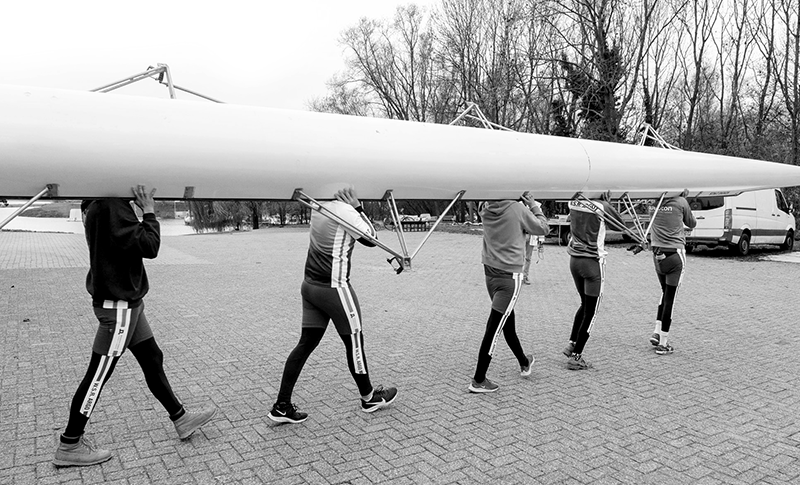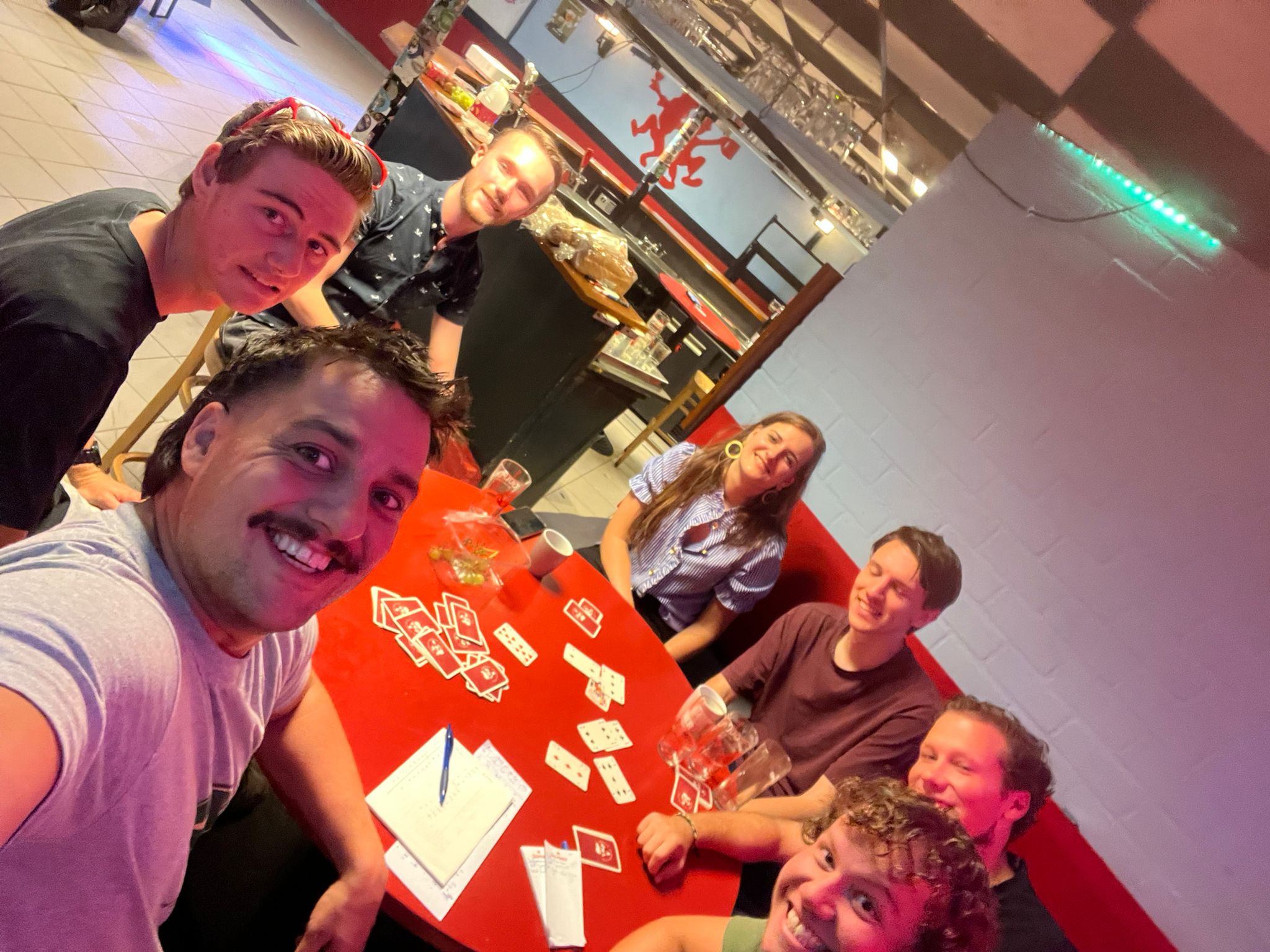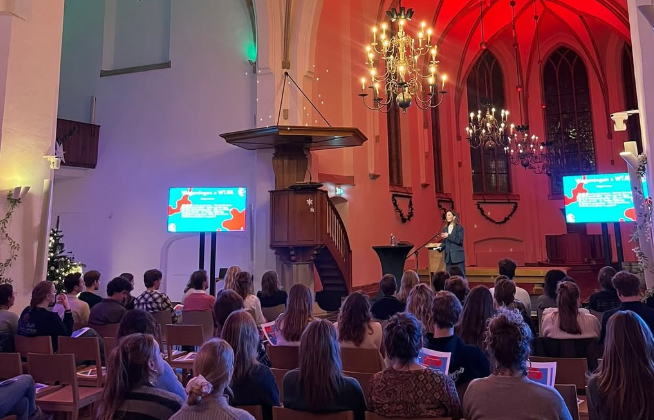The large student societies in Wageningen are worried about a proposal for a redistribution of the ‘financial support for students’, FOS. They fear that it will become harder to recruit people for some of their committees if no financial compensation is offered. On the other hand, the societies that don’t currently get any FOS are delighted with the proposal.
So what’s going on? The Student Service Centre is proposing to change the distribution of FOS (the financial support for students who work for, say, a student society board, the Student Council or Thymos sports association). If adopted, the proposal would mean that societies that are currently excluded from this financing would be able to apply for it. The idea is that the redistribution would lead to a broader range of student societies. At the same time, it would mean that less money would go to the big student societies from the academic year of 2025/2026. The Student Council party VeSte and the Wageningen Federation of Student Associations (WKvV) are critical of the plan and favour an increase in the FOS budget instead of a redistribution.
‘Put simply, FOS consists of two variables,’ explains Steg Snelders of VeSte. ‘There’s the monthly FOS amount and there is the number of months of FOS a society gets. WUR student numbers have more than doubled since 2013. There are more societies too, and the number of students who belong to one has doubled. But the number of FOS months available for societies has not been changed in 11 years.’
Recruiting for committees
That is a problem, says Snelders. ‘Instead of making sure that the FOS budget keeps pace with the student population, the university is now proposing a redistribution of the FOS months, claiming that there isn’t the money to increase the budget. Yet the university’s budget has increased by 80 per cent in 11 years. So we say: it’s a matter of choice that there isn’t the money. You can also choose to allocate more budget to this. Societies play a crucial role in Wageningen student life.’
It’s a matter of choice that there isn’t any money
According to Snelder, in practice the redistribution will mean that the larger societies such as SSR-W, Ceres and KSV Franciscus won’t be able to fund two of their committees. ‘If you can’t offer students any financial compensation for having to postpone finishing their degree, it will be much harder to fill the positions on those committees. And that could endanger the continuation of the societies.’
Snelders expects that in the first instance, the budget cuts will mean cutting down on the ‘extras’. ‘Student societies see themselves as doing an important social job by running things like wellbeing weeks, symposia, political debates and the like. It would be shame – for non-members as well – if such events couldn’t be run anymore. It would have a negative effect on Wageningen as a student town.’
Sensitive
Rutger Kroes of the Student Service Centre understands that the redistribution is a sensitive issue for the large societies. ‘That’s why we want to give them time in the next academic year to prepare for it.’ At the same time, he points out that the FOS budget has in fact grown with the student population. ‘The total number of FOS months has gone up from around 1600 in 2013/2014 to around 2000 in 2023/2024. The FOS budget was 485,000 euros ten years ago, and now it’s 772,000 euros.’
It is true that the additional FOS months didn’t go to the large student societies, says Kroes. ‘More societies have started up that qualify for FOS, including study associations, sports clubs and a new student society. Argo is getting a bit more support too.’ And yet the funding received by the large student societies has in fact gone up, adds Kroes. ‘Last year, the amount a fulltime student board member got went up to 470 euros per month, which means that relatively more money went to the large societies. We have to take that raise into account in the decisions we are now making.’
Even after the proposed changes, the big societies here will still get above average FOS amounts
Moreover, Wageningen University’s FOS payment to large student societies is above the national average, says Kroes. ‘The biggest societies in Wageningen currently still get 144 FOS months per year. With this proposal, that will go down to 130 months. By way of comparison: at Utrecht there is only one society that gets about 140 months of FOS. In the other cities, the large student societies often only get 60 or 70 months. So the funding level here is really high. That is partly because the societies play a bigger role here than they do in other, bigger university towns.’ And the growth of the large societies over the past 11 years doesn’t necessarily mean they should get more money, in Kroes’s view. ‘If a society grows, it can expect more from its members: more income from membership fees and more people to serve on committees. Not everything has to be paid for by the university.’
An extra incentive
Meanwhile, the societies that don’t currently get any financial support from the university welcome the proposal. The Indian Student Association (ISA) has a board of seven for a membership of about 250 students, explains treasurer Anushka Sawarn (23). ‘Regular board work takes us a couple of hours every week, and when we organize events, it is often a bit more hectic. Our events are not exclusively for Indians, by the way. About 220 people with nationalities from all over the world joined us for our Holi Festival of Colours, for example.’
Combining studying and board work is a bit much for a lot of ISA members, says Sawarn. ‘While we do receive funding for our events via the Kickstart Social fund, we do not receive FOS for our board work, and I think that could help us recruit more people for our board. It would be a good extra incentive, alongside the motivation to do something for the Indian community.’
If I got FOS funding for my board work, I would have said ‘yes’ sooner
Financial support for board work is also more than welcome among the members of’t Noaberschop (the student society for students from the eastern region of the Netherlands, 75 members). Board chair Loïs Pluimers (23): ‘I was secretary last year, and this year I’m chair. Both years, it was hard for form a new board. Four of us do the work of five board positions. In theory, it’s possible to combine it with your studies, but if you want to do it properly, it’s quite time-consuming. You shouldn’t underestimate that.’ As well as her studies and her board work, Pluimers also has a part-time job to be able to afford her studies and accommodation. Partial compensation for board work would make it more manageable. That would be good for the society, and maybe I wouldn’t need to work part-time anymore.’
‘I think the financial support will make it easier to recruit new board members,’ says Thyrza van der Molen (20), chair of WSSFS (the Frisian students’ association in Wageningen, with 50 members). ‘But even now it is not usually hard to form a new board, because you can go on being a fulltime student as well. It was harder to get people this year, though, than it used to be. I had doubts myself, because my studies are going really well. I don’t want to neglect them. If I was paid for my board work, I’d have said “yes” sooner.’
FOS
FOS – financial support for students – offers students financial compensation for costs like delaying graduation, which they incur if they devote time to the Student Council, a society board or Thymos sports association.
Top sportspeople qualify for the funding too, as do students in difficult circumstances beyond their control.
The sum students get is currently 357 euros per month. Last year an additional 120 euros was allocated to fulltime board members.

 Student rowing club Argo has seen a slight increase in its FOS budget over the past 10 years. Photo Guy Ackermans
Student rowing club Argo has seen a slight increase in its FOS budget over the past 10 years. Photo Guy Ackermans 

